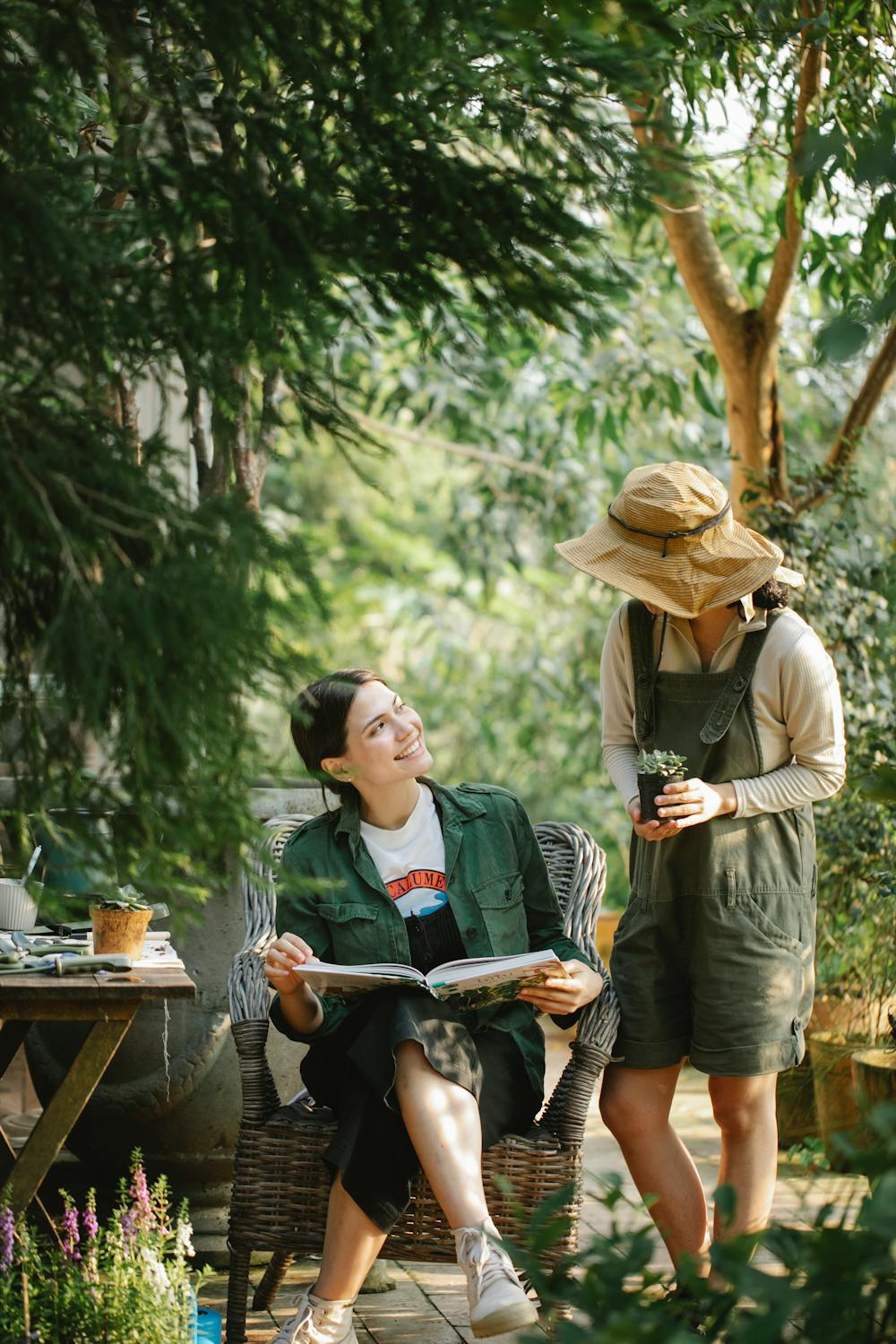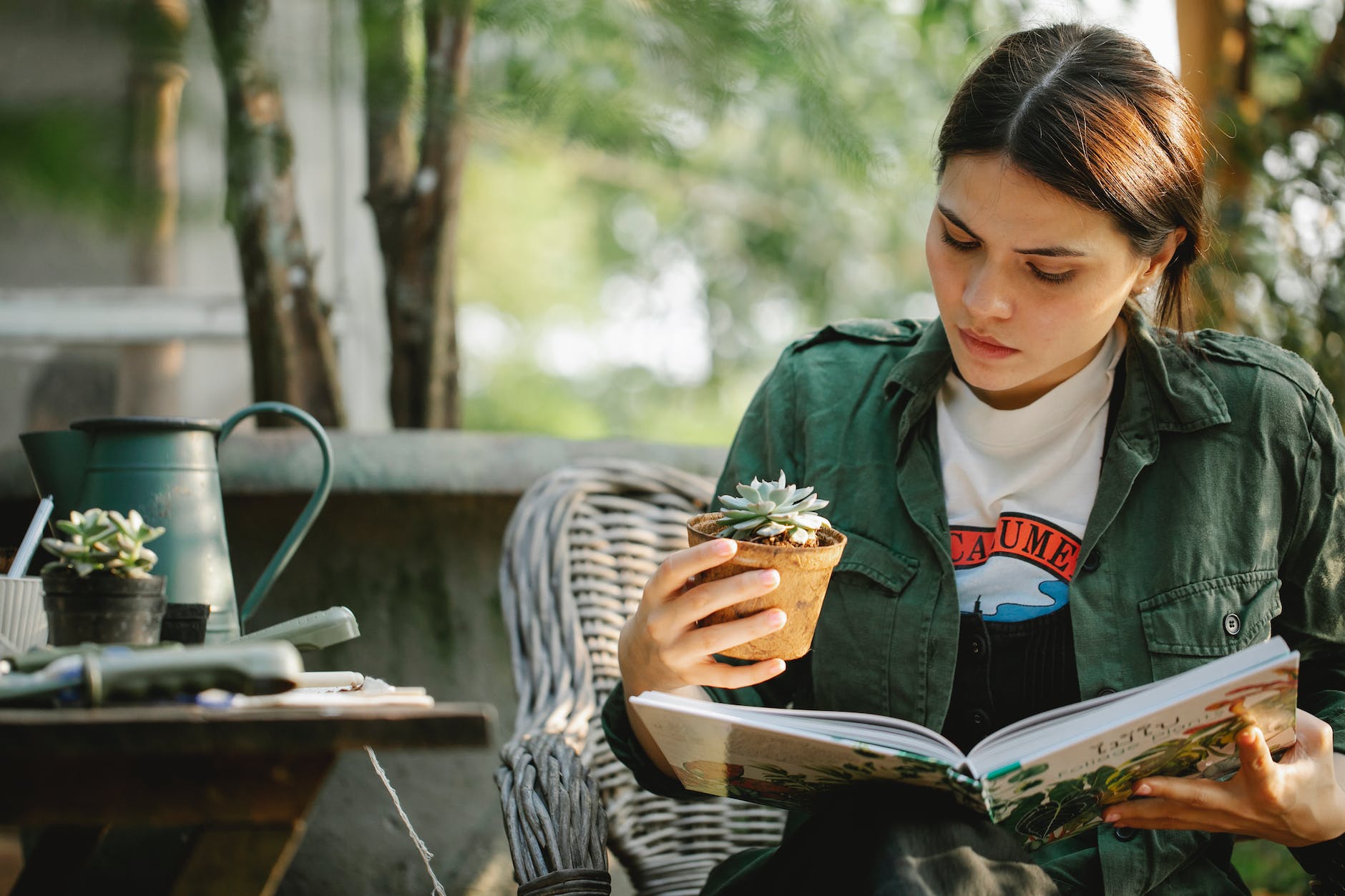
Whether you’re a seasoned green thumb or a newbie with dirt under your fingernails for the first time, there’s one secret weapon every gardener should have in their arsenal: books. Yes, those dusty tomes on your shelf hold the key to unlocking a world of vibrant blooms, bountiful harvests, and tranquil green havens.
But with so many amazing gardening books out there, where do you even begin? Don’t worry, I’ve got your back! I’ve scoured the shelves and curated a list of 6 essential books that will inspire you, inform you, and guide you on your gardening journey. From practical tips to stunning inspiration, these books are like magic seeds – ready to sprout a love for the soil and all its wonders in your heart.
So, grab your favorite comfy chair, settle in with a steaming mug of something nice, and let’s crack open these literary treasures together. Prepare to be transported to verdant landscapes, discover fascinating botanical secrets, and maybe even learn a few tricks to make your own garden the envy of the neighborhood. Happy reading, fellow plant lovers!
In the coming sections, I’ll be highlighting each of these incredible books, sharing what makes them special, and why they deserve a place on your shelf (or e-reader!). So stay tuned, and get ready to let your inner bookworm and budding botanist run wild!
Best Gardening Books for Beginners
“The Vegetable Gardener’s Bible” by Edward C. Smith
This book has been an absolute game-changer in my approach to growing vegetables, and I’m excited to share my insights with you.
What makes this book stand out is its simplicity and clarity. Edward C. Smith has a way of explaining gardening techniques that is easy to understand, even for beginners. The book covers a vast array of topics, right from the basics of starting your vegetable garden to more advanced techniques. It’s like having a friendly expert by your side, guiding you through each step.
One aspect of the book I particularly appreciate is its focus on organic gardening methods. In today’s world, where we are increasingly conscious about our health and the environment, this book offers invaluable advice on how to grow vegetables without relying on chemical fertilizers or pesticides. It’s all about working in harmony with nature, which not only benefits our health but also helps in sustaining the environment.
Another highlight of “The Vegetable Gardener’s Bible” is its emphasis on high-yield strategies. This is particularly useful if you, like me, are always looking to make the most of your garden space. The book offers innovative ideas on how to increase your vegetable yield, ensuring that every inch of your garden is productive. These strategies are a boon, especially if you have limited space but still want a bountiful harvest.
“Gardening Basics for Dummies” by Steven A. Frowine
It’s a book I often recommend to newcomers in my gardening workshops, and here’s why.
Firstly, Steven A. Frowine has a knack for breaking down complex gardening concepts into bite-sized, understandable pieces. The language used in the book is straightforward and free of jargon, making it incredibly accessible. When I first started gardening, books like this were a lifeline. They helped me grasp basic concepts without feeling lost in technical terminology.
What’s particularly impressive about “Gardening Basics for Dummies” is the breadth of topics it covers. It walks you through the very fundamentals of gardening – starting right from how to select the right plants for your garden. This step is crucial and often overlooked. The book helps you understand how to choose plants based on your specific garden conditions, such as soil type, sunlight, and climate.
The book doesn’t stop at plant selection; it delves into all the essential aspects of basic plant care. This includes watering, fertilizing, and dealing with common pests and diseases. These are the pillars of successful gardening, and Frowine’s guidance is practical and easy to implement. I’ve often turned to this book for quick refreshers on certain care aspects.

Best Books for Organic Gardening
“Rodale’s Basic Organic Gardening” by Deborah L. Martin
What sets this book apart is its unwavering commitment to organic gardening. Deborah Martin offers a wealth of information on how to garden in a way that supports and sustains the natural ecosystem. For me, this approach resonates deeply, as it aligns with my belief in being a responsible steward of the earth. The book lays out practical, easily implementable strategies that anyone can adopt, regardless of their gardening experience.
A highlight of “Rodale’s Basic Organic Gardening” is the detailed guides it offers on key aspects like composting, pest control, and crop rotation. Composting, for instance, is a critical component of organic gardening. It’s a natural way to enrich the soil and reduce waste. Martin’s guide demystifies the composting process, making it approachable and doable even for those who have never tried it before.
Pest control is another area where this book shines. Instead of resorting to harmful chemicals, it teaches you how to manage pests in an eco-friendly way. This is crucial, as it helps maintain the delicate balance in your garden’s ecosystem. And then there’s crop rotation – a concept that was quite enlightening for me when I first started. It’s a simple yet effective technique to keep your soil healthy and reduce disease and pest problems.
“The Organic Gardener’s Handbook of Natural Pest and Disease Control” by Fern Marshall Bradley
The beauty of this book lies in its comprehensive approach to tackling garden pests and diseases organically. It’s a treasure trove of information, providing natural solutions that align with my philosophy of avoiding chemical interventions. Dealing with garden troubles organically not only protects our environment but also keeps our gardens safe for pollinators, pets, and people.
One aspect I deeply appreciate about this book is its user-friendly format. The information is presented in a way that’s easy to understand and apply, even for those who are new to gardening. When I first delved into organic gardening, the straightforward layout of this book helped me quickly find solutions to specific problems I was facing in my garden.
Practical tips are scattered throughout the book, offering real-world solutions that I’ve found to be effective. Whether it’s a particular type of insect infestation or a plant disease, the book provides step-by-step guidance on how to manage these issues organically. I’ve personally used several of these tips in my garden with great success.

Best Books for Edible Gardening
“Grow Cook Eat: A Food Lover’s Guide to Vegetable Gardening” by Willi Galloway
This book is a unique blend of two of my greatest loves – it intertwines the art of growing your food with the joy of cooking it, offering a complete journey from garden to table.
What I adore about this book is its holistic approach. Galloway seamlessly integrates the process of growing your own vegetables with how to use them in your kitchen. It’s not just a gardening book or a cookbook; it’s a guide that takes you through every step – from planting seeds to savoring the fruits (or vegetables, in this case) of your labor. This approach resonates with me deeply, as I believe the connection between how we grow our food and how we prepare it is fundamental to appreciating and understanding our food better.
The book is filled with practical gardening tips, but what makes it stand out are the harvesting tips and the delicious recipes included. Galloway provides insights on when and how to harvest vegetables for optimum flavor, a skill that can transform your cooking. The recipes included are not only mouthwatering but also inspire creativity in the kitchen. They encourage experimenting with homegrown produce, something I’ve always been an advocate for.
“The Edible Balcony” by Alex Mitchell
Living in a city, it’s easy to think that growing your own food is out of reach, but this book brilliantly dispels that notion. It’s a guide that has reshaped my perspective on what’s possible in the smallest of spaces.
Mitchell’s book is a celebration of urban gardening, specifically tailored for balconies and small spaces. What I appreciate most is its focus on practicality and creativity. It demonstrates that you don’t need a sprawling garden to grow your own food; a small balcony or window ledge can suffice. This approach is incredibly empowering for city dwellers like myself, who yearn to connect with nature and grow their own produce.
The book is packed with inventive ideas for container gardening. Mitchell introduces a variety of container options that can accommodate different types of plants, from herbs to vegetables and even fruits. These ideas are not just functional but also aesthetically pleasing, turning your balcony into a lush, green oasis. I’ve personally adopted several of these container gardening ideas, and they’ve transformed my balcony into a productive and beautiful space.
Final Thoughts: 6 Best Gardening Books
Six literary journeys to take you deeper into the heart of the garden. Remember, these books are just the tip of the trowel – there’s a whole world of verdant inspiration waiting to be discovered. Let them ignite your passion, guide your planting decisions, and soothe your soul with stories of nature’s magic.
Whether you’re a balcony botanist or a backyard baron, I truly believe that every gardener deserves a trusted library. These books will be your companions, your mentors, and your cheerleaders as you cultivate your own green haven. So, dive in, get your hands dirty, and let these pages blossom into vibrant realities in your own garden.
And don’t forget to share your discoveries! Tell me which book resonated most with you, what gardening wisdom you unearthed, or what new plant you’re itching to try. Remember, the love of plants is a community, and our gardens are all stories waiting to be written. Happy reading, happy planting, and happy growing!





